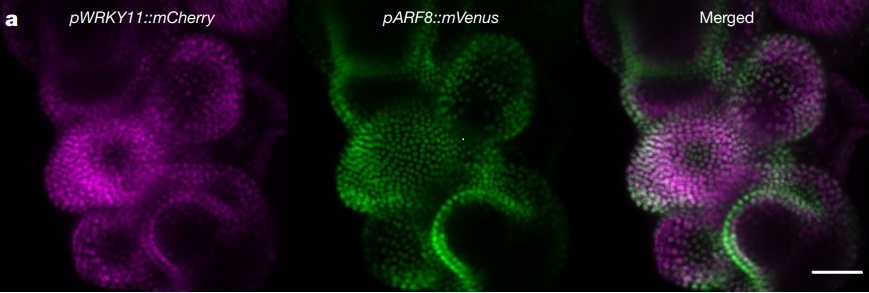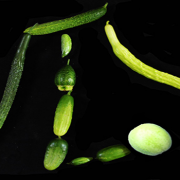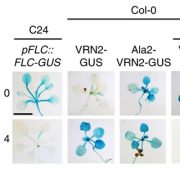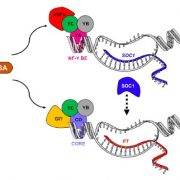A network of transcriptional repressors modulates auxin responses (Nature)
A network of transcriptional repressors modulates auxin responses

Untangling developmental programs and their methods of regulation are key to understanding the lives of all organisms. In plants, auxin is a hormone essential for plant growth and development. The class A AUSIN RESPONSE FACTOR (ARF) transcription factors necessary for auxin signaling throughout the plant lifecycle. While the expression patterns of these class A ARFs have been determined, how the individual signaling components are regulated as a system for development remains to be fully determined. In this study by Truskina et al., the authors perform multiple experiments to develop a model that implicates transcriptional repression as the main modulator of auxin responses, rather than a combination of chromatin modifications and transcriptional regulation. Their data first suggest that portions of chromatin coding for class A ARFs are constitutively open. Further, through an enhanced yeast one-hybrid screen, the authors identify a number of new transcription factors that bind to class A ARF genes, the majority of which demonstrate strong repressive activity. Expression and genetic analyses confirm these repressors’ involvement in the auxin regulatory network, and thus “reveal a functional regulatory network controlling the transcription of class A ARF genes… regulated by TF-mediated repression.” (Summary by Benjamin Jin) Nature 10.1038/s41586-020-2940-2









